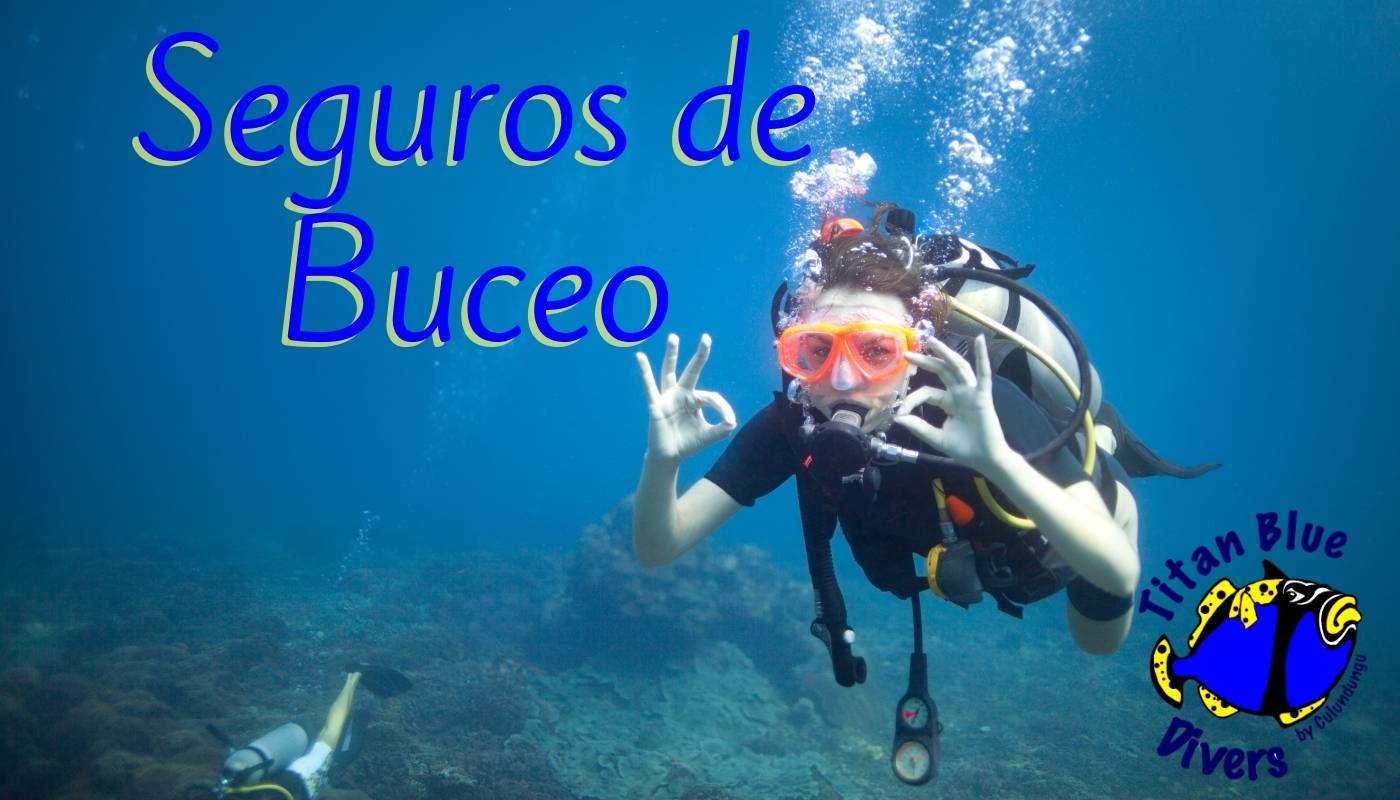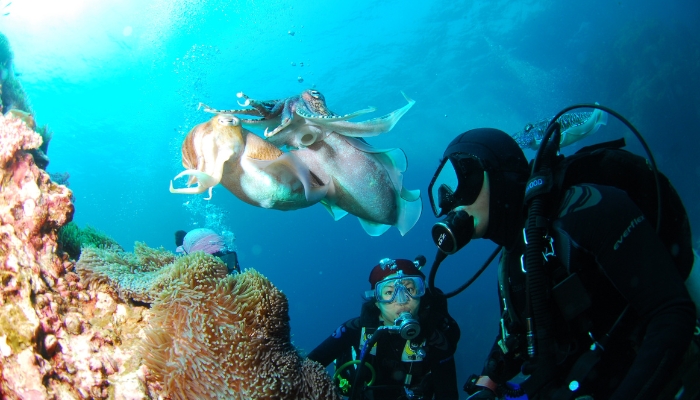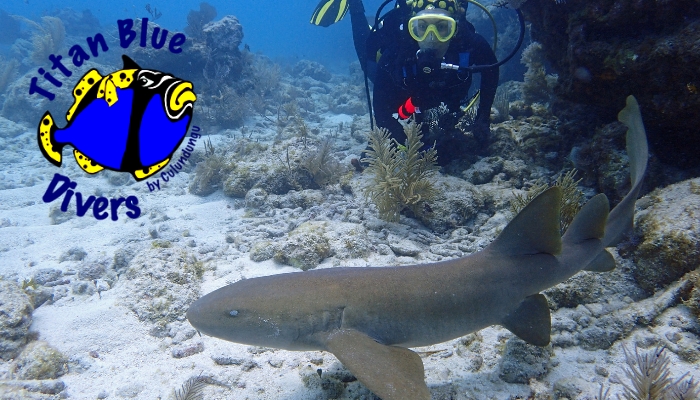
Diving Insurance - Which one to choose? How to buy it?
Diving insurance has become an indispensable requirement in the practice of this interesting activity. It is not only a requirement, but it also guarantees a great relief when diving, especially in economic terms.
Diving in Lanzarote is an extremely safe activity, but we must not forget that there are factors that we cannot always control in an environment as complex as the marine environment. Therefore, it is not only important to take precautions in terms of equipment, preparation or physical condition, but also to have a guarantee of protection against any incident.
There are different types of diving insurance, as well as certain limitations and parameters that allow us to determine which one is better than another. So that you can choose yours without spending hours reading unnecessary clauses, we have created a practical guide in which we explain the most important details and what you should always look for in your policy. Join us and find out.
Why do I need dive insurance?
Diving as an activity has evolved a lot, being an increasingly safe practice. However, this does not imply that it is 100% risk-free.
Certainly the risk of suffering a decompression sickness, gas embolism, barotrauma or any other accident of similar dimensions is low. However, if this were to happen, it would be a serious economic blow in view of the medical expenses involved in such an emergency.
Therefore, there is no doubt that the peace of mind that can come from feeling that you have a plan B if things do not go as planned is incalculable.
What happens if I don't take out dive insurance?
In Spain it is mandatory to have diving insurance. The legislation of our country requires that every person who practices this sport, even in recreational mode, must have a specific accident and civil liability insurance.
In addition, although it is not mandatory in other countries outside the European Union, it is advisable to avoid unnecessary risks.
In the specific case of Spain, if you do not have insurance, many centers will not allow you to dive. In addition, they will also require a diving certificate, hyperbaric medical examination and your ID card.
The medical examination will serve to evaluate your visual, auditory and psychomotor skills in order to rule out any alteration and/or physical condition that could put you in danger while performing the activity. performing the activity. It is usually valid for 2 years from the date written by the doctor.

How to Choose the Best Diving Insurance in 4 Steps?
We are all looking for the same thing: a good insurance for which we do not have to overpay and which protects us correctly. However, to make a good choice it is necessary to follow the right parameters. Here is a guide with the key aspects you should take into account before deciding on your diving insurance:
1. What types of diving insurance are best for you?
The types of insurance are classified according to the frequency with which we intend to dive, whether daily, weekly, monthly or yearly. Now we will tell you what each one consists of and what the differences are.
1 day diving insurance
They are the most indicated if you only dive very sporadically (3 to 4 times a year maximum). Generally, it is possible to hire it in the center where you are going to dive.
Keep in mind that this is the most expensive insurance proportionally, since it will be very unprofitable if you end up doing a few dives.
Weekly and monthly insurance
These are the most suitable alternatives if you are going to dive for a few days of vacation.
Annual dive insurance
It offers you coverage for 12 months and is the most cost-effective alternative if you will make several dives a year (more than 4 or 5), even if only during the summer. It is usually the most requested type of insurance by divers.
2. Check the coverage offered by your policy.
There are essential coverages that must be included in the insurance policy you have in mind.
First of all, check that it protects you against anything that may happen to you while diving, as well as covering medical expenses, the cost of the hyperbaric chamber, rescue, compensation for disability or death; repatriation in case of death, cost of transportation from the diving site to the medical center or hyperbaric chamber, etc.
Liability coverage is also essential, as this is the part of the insurance that will take care of those damages you may unintentionally cause to other people while diving.
In this respect, we recommend that you opt for the policy that offers the best coverage for third party damages, since indemnities of this type usually represent really high amounts that you should not be taken by surprise.
3. Check if it covers other aquatic activities.
Most diving insurance policies also cover other water sports, such as freediving, spearfishing, snorkeling, surfing, canoeing, surfing and others. So, if you are planning to practice these other activities, make sure that it is included in your policy to avoid paying another specific insurance for that sport.
This is especially important if you are going to do any of these sports frequently, as you will be able to save a few euros 😉.
4. Define whether you will dive in Spain or in another country.
In case you are planning to dive outside Spain, check how many days of diving your insurance will cover while you are in another country. This type of service is usually provided exclusively by annual, monthly and weekly insurances, usually guaranteeing health care abroad for 30 to 90 days per trip (it may vary for each type of insurance).

Diving insurance limits
Before contracting any type of insurance, you should not only check that it has all the coverages you need, but you should also verify which are the limitations it presents. Below, we will tell you which are the most common and the first ones you should look at when reading its clauses:
- Depth: There are insurances that only cover dives up to 30 to 40 meters.
- Pre-existing conditions: If you suffer from any specific illnesses such as asthma or diabetes, you should make sure that your diving insurance does not have explicit exclusions.
- Age of the diver: If you are over 65 years old, you should check up to what age your insurance covers you before deciding to take it out. This is because not all insurances cover any age or have particular exclusions after certain years.
Best Diving Insurance - Comparison
Global Diving
Scuba Diving 4.0
Annual
This insurance covers 12 guarantees, including unlimited medical expenses, hyperbaric chamber, travel assistance, transportation or repatriation.
For medical expenses abroad, they cover a capital sum of up to €30,000.
You can even take advantage of it to practice other sports activities such as swimming, snorkeling, surfing, paddle surfing, canoeing, underwater scooter, scuba diving and kayaking.
Monthly
It covers 8 guarantees, among which are unlimited medical expenses (including hyperbaric chamber) in approved centers in Spain.
The capital sum covered for medical expenses in other countries is €30,000.
The additional activities covered by this policy are the same as in the annual policy.
Annual
It covers 13 warranties (it also has a VIP plan with 15 warranties).
For medical, surgical, pharmaceutical and hospitalization expenses worldwide, the available capital is 50,000 euros.
Hyperbaric chamber is also included. Coversup to 60€ for emergency dental expenses abroad (an alternative not available in the annual Global Diving).
It can also be used for freediving, spearfishing, water skiing, snorkeling, swimming, canoeing, surfing, underwater scootering, fishing and jet skiing.
Monthly
It also covers 8 guarantees and for medical expenses a fee of €30,000 is covered, in addition to including the hyperbaric chamber. This applies both nationally and internationally.
The guarantees do not include emergency dental expenses abroad, which are available under the annual plan.
It also covers the practice of the same activities as in the annual plan.
Both diving insurances also have weekly and daily modalities. Don't forget that if you have any doubts, you can tell us in the comments box. We will be happy to help you.

